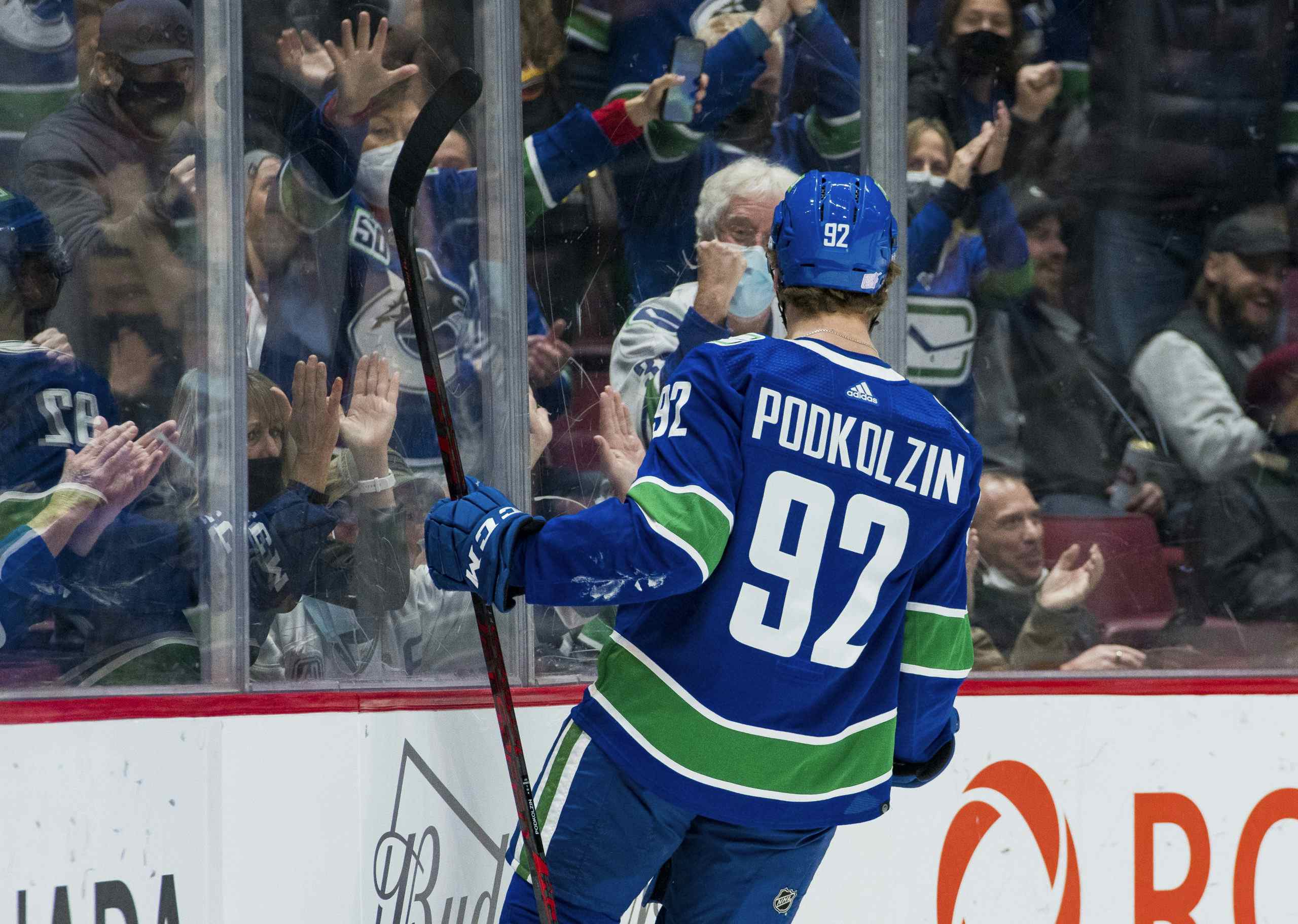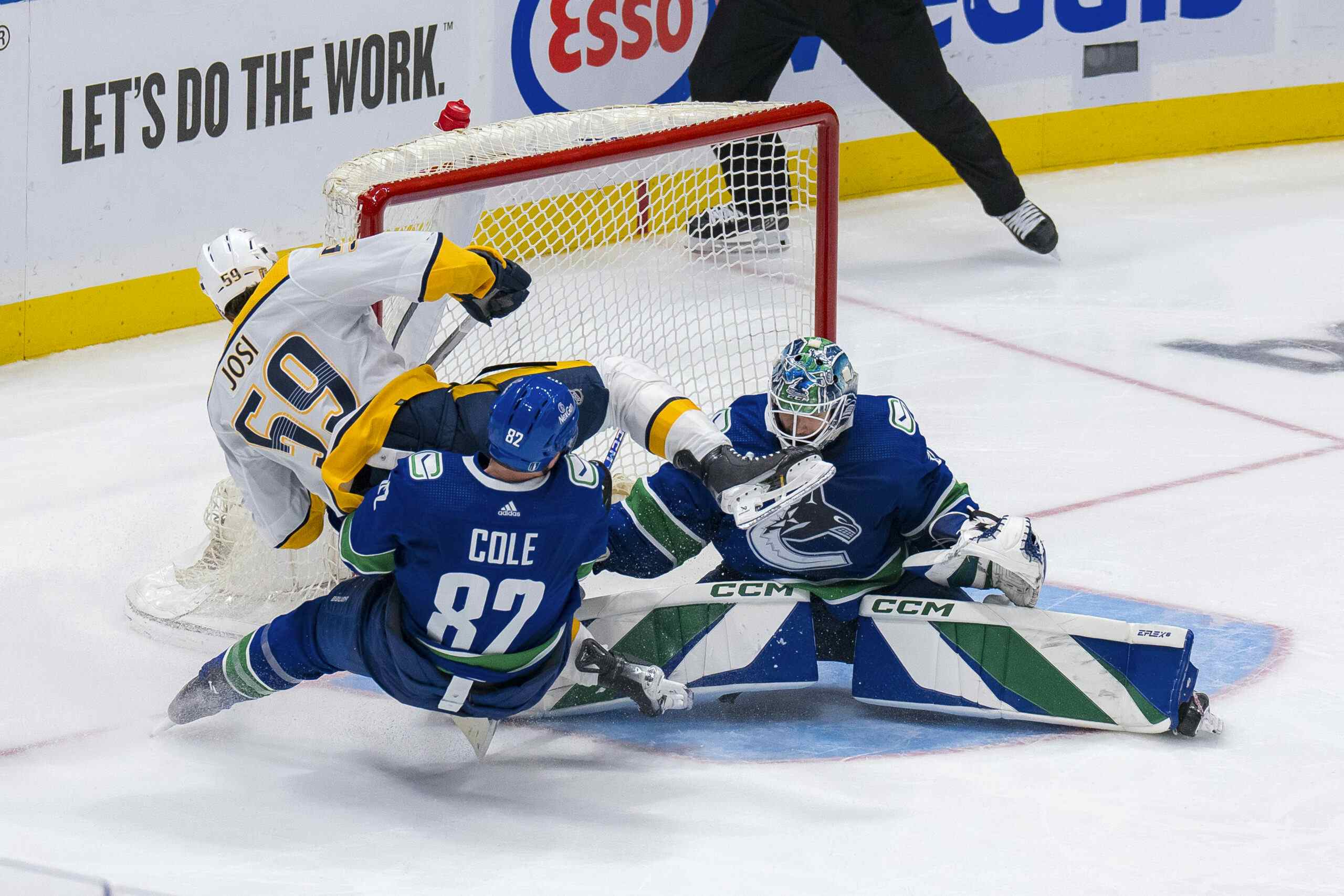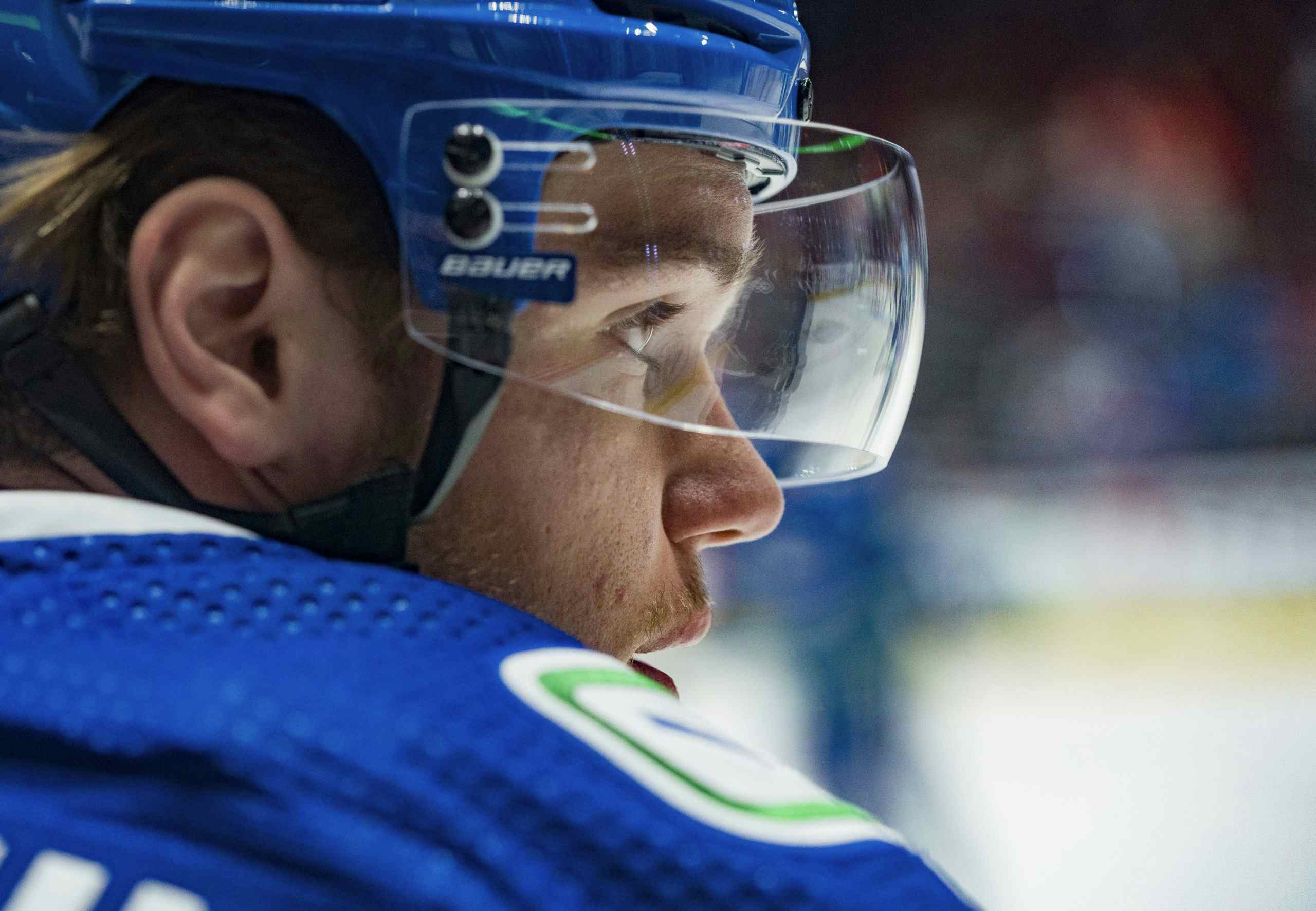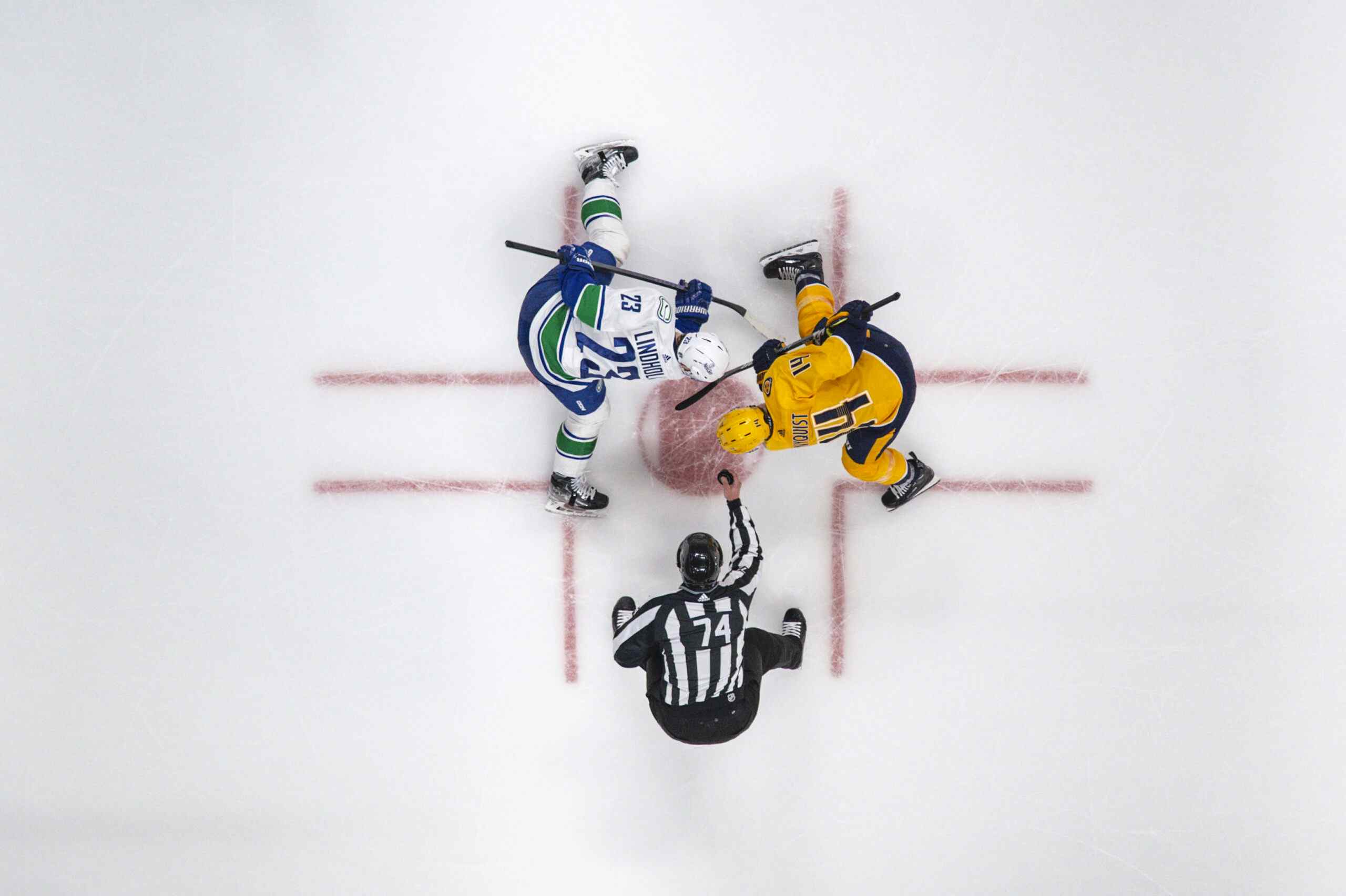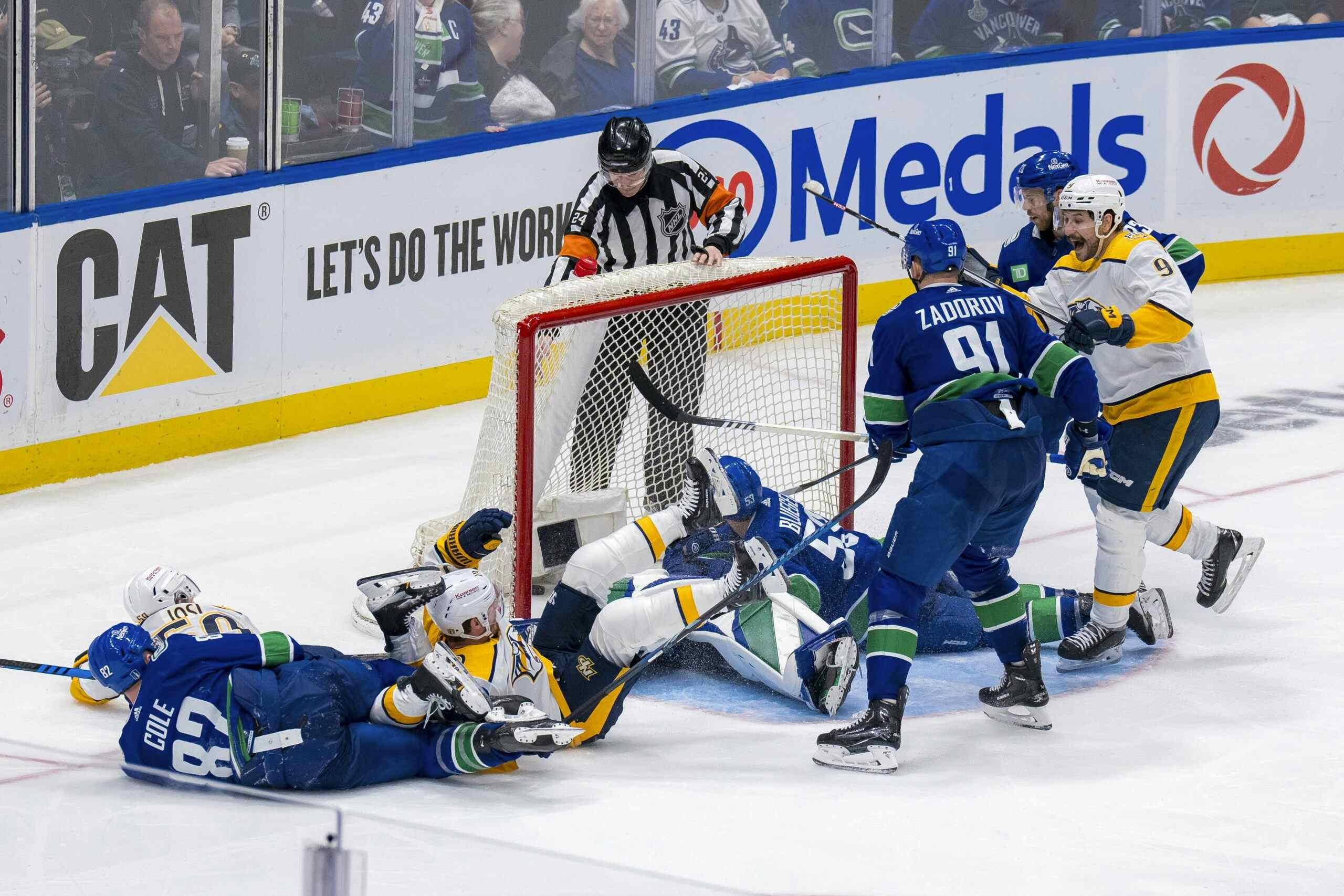Preparing for the Wild: Sizing up the goaltending battle between the Minnesota Wild and Vancouver Canucks
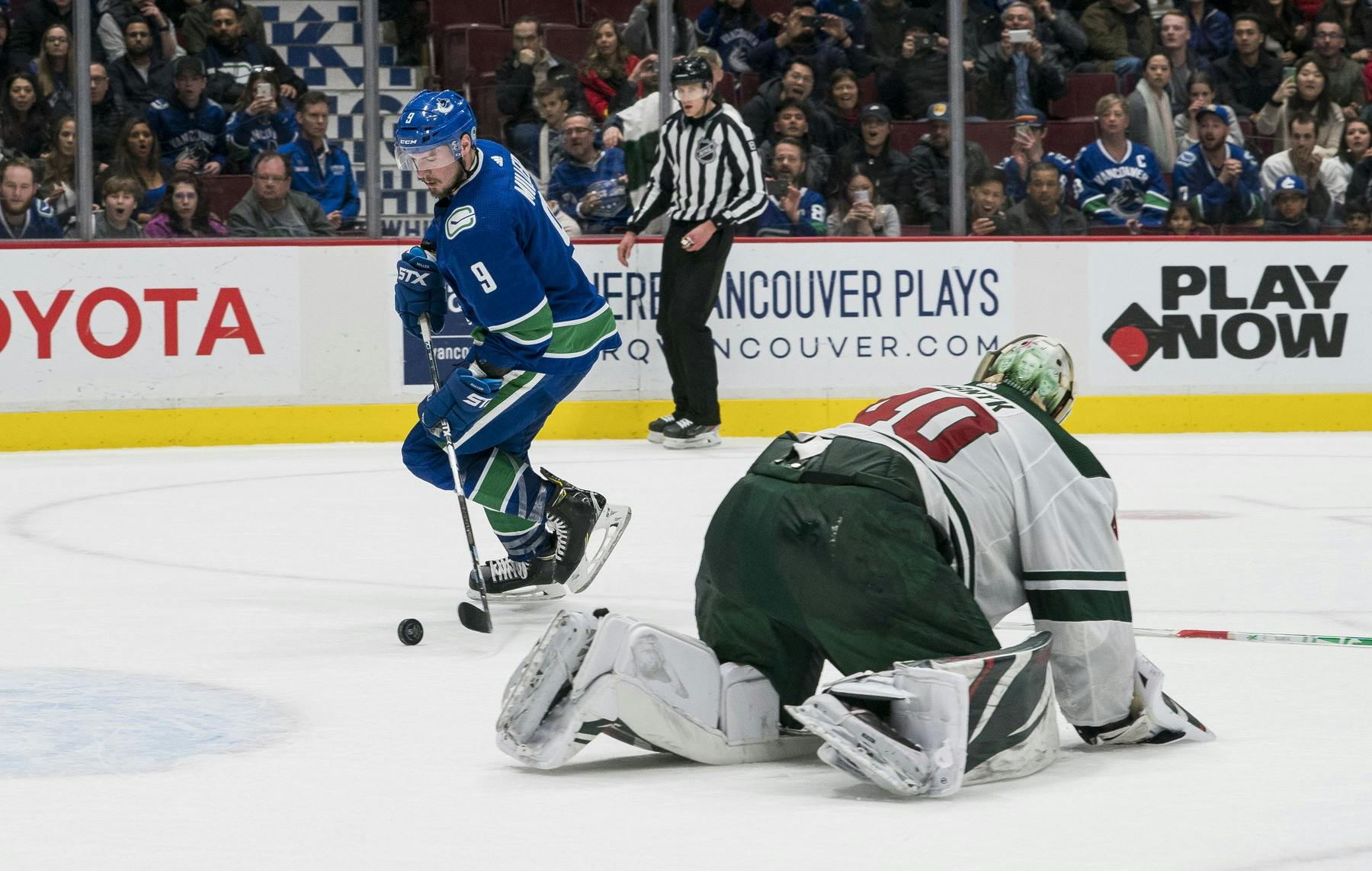
We now know that the play-in series between the Vancouver Canucks and the Minnesota Wild won’t kick off until August at the earliest, which seems like a long way away — but not so long that we at CanucksArmy aren’t already getting ready.
If you’ve been keeping up with our Preparing for the Wild series, you’ll know that our fearless leader David Quadrelli has already broken down the potential postseason deployment of superstar Elias Pettersson, while yours truly has taken a comparative look at each team’s offence and defence.
Thus far, the Wild have come out way ahead in terms of the backend, while the Canucks look to be significantly stronger when it comes to scoring goals. In other words, it’s a bit of a dead heat, and that means that the odds-on favourite to make it through to the Colorado Avalanche in the first round will depend heavily on which team receives better goaltending.
Fortunately, if you’ve paid any attention to the Western Conference this season, you already know the conclusions that this column is going to reach — Vancouver has the stronger goaltending tandem and, to quote an overused phrase in sport-opinionating — it isn’t even close.
And below, we’re going to dig in to just how not close it really is.
Comparing Starters
By the time the puck drops on the 2020 postseason, Jacob Markstrom will be healthy and ready to return to the Canucks’ crease as their starting goaltender. He’ll be facing off against…
…Wait, who is the Wild’s starting goalie, anyway?
Figuring Out Who The Wild’s Starting Goaltender Is
Interim coach Dean Evason recently told The Athletic that the starter’s job was still very much up for grabs heading into the postseason. According to Evason, “I think whoever’s here in our training camp is in the mix. There could be somebody that is absolutely outstanding through our scrimmages or what have you if we get to that point, and then we’ll be like, ‘Geez, maybe we better put him in.’”
That might sound like generic coach-speak to most, meant to indicate that all players will still have to work for their spot on the roster. One might almost expect Travis Green to say something similar in regards to Thatcher Demko stealing starts from Jacob Markstrom.
That being said, it’s a little more genuine coming from Evason, because there aren’t just two different Wild netminders that could feasibly find themselves starting Game 1 — there are three.
Alex Stalock
| Record | Save % | GAA | Quality Start % | Goals Saved Above Average | |
| 2019/20 | 20-11-4 | .910 | 2.67 | .528 | 0.84 |
| Career Avg | .909 | 2.61 | .545 | -0.67 |
Hands up if you knew that Alex Stalock, and not Devan Dubnyk, was the closest thing the Wild had to a starter in 2019/20. In fact, it was a career season for the perennial backup, with new high-water marks in games started, wins, and many other statistical categories — all of which he drastically outperformed Dubnyk in.
Without Stalock’s 20-11-4 record, Minnesota wouldn’t have come close to the postseason this year, even with the expanded 24-team format. He may not have been the team’s most valuable player, but he was easily their most valuable goaltender.
With all that being said, the 32-year-old Stalock was still a more or less a league-average goalie in 2019/20. His save percentage ranked 37th among netminders who played in at least 30 games — which means, if he is considered a starter, he has to be considered in the bottom tier. Stalock is more accurately described as a solid backup who has been thrust into the starter’s position by the lacklustre performance of the goalie in front of him.
Devan Dubnyk
| Record | Save % | GAA | Quality Start % | Goals Saved Above Average | |
| 2019/20 | 12-15-2 | .890 | 3.35 | .321 | -16.23 |
| Career Avg | .915 | 2.58 | .542 | 2.42 |
Devan Dubnyk was traded to the Wild in 2014/15, led them to the postseason, and picked up a Vezina nomination for his efforts. He then went on to take Minnesota to the playoffs for the next three years, playing an enormous amount of games and putting up better-than-average stats. In 2018/19, however, both Dubnyk and the Wild as a whole began to decline — and in 2019/20, his play appears to have fallen off the proverbial cliff.
Many Wild fans hoped that Dubnyk’s shaky performance last season was an anomaly, but instead, it was only the beginning of the 34-year-old’s decline. Though he still swapped starts with Stalock all season and might have played the same number of games if not for a late-November absence due to a personal matter, Dubnyk’s stat line did not support his ice-time — and the numbers only dipped further as the year progressed. His “Goals Saved Above Average” stat, one of the truest measures of a goaltender’s impact on his team’s success, ranked third-worst in the league behind Jimmy Howard and, surprisingly, Braden Holtby. And what do all three of those individuals have in common? They all lost their starting position to a younger goalie in 2019/20.
By all rights, Dubnyk should not be considered a viable option to start in this play-in series. But this is the NHL, where such decisions aren’t always made with logic in mind. Dubnyk is only one-and-a-half seasons removed from de facto starter status and still on the books for $4.333 million for another year. If he has a strong training camp, or if Stalock falters at all, Vancouver fans should not be shocked to see Dubnyk between the pipes in Game 1 — but they should certainly be excited at the prospect of lighting him up.
Kaapo Kahkonen
| Record | Save % | GAA | Quality Start % | Goals Saved Above Average | |
| 2019/20 | 3-1-1 | .913 | 2.96 | .600 | Inc. |
| Career Avg | .913 | 2.96 | .600 | Inc. |
Kahkonen is, if you’ll pardon the pun, the Wild-card in this scenario. He saw his first NHL action in late November and early December, filling in for the absent Devan Dubnyk — and, in that limited sample size, he made it clear that he’s probably the most talented goaltender in the organization.
It’s unlikely that a five-game resume is going to be enough to earn Kahkonen the starter’s job this postseason, but there’s also his AHL record to consider. For 2019/20, Kahkonen was awarded the Baz Bastien Memorial Award as the league’s top goaltender — not bad for a 23-year-old in just his second North American season.
We’ll have to take Dean Evason at his word that Kahkonen will be given a legitimate shot at winning the role in the Wild’s abbreviated training camp, but it’s definitely a long-shot. And, honestly? Vancouver fans should hope it doesn’t happen. Neither Dubnyk nor Alex Stalock look to be the sort of goaltenders that could steal a series, but Kahkonen just might be.
Versus Vancouver’s
There’s nothing in the last few paragraphs to suggest that Vancouver has anything to worry about in this goaltending battle — both Markstrom and Demko outperformed all Minnesota goalies in 2019/20. True, both teams experienced controversy in the crease this season, but in a much different sense — Vancouver fans stressed out about having too many quality netminders, and Wild fans stressed about not having any. That pretty much says it all but, in the interest of completion, let’s see how the numbers stack up anyway.
Jacob Markstrom
| Record | Save % | GAA | Quality Start % | Goals Saved Above Average | |
| 2019/20 | 23-16-4 | .918 | 2.73 | .581 | 11.40 |
| Career Avg | .911 | 2.80 | .520 | -1.52 |
There’s an argument to be made that Markstrom’s stat line isn’t that much better than Stalock’s or Dubnyk’s, either in 2019/20 or in their overall careers, and that they’re all goaltenders of similar quality — but there’s some important context to consider that blows that notion out of the water.
Anyone who watched the Canucks play this season can tell you that, more often than not, Markstrom kept them in games they had no business being in, frequently filling the highlight reel with literal game-saving stops, and that’s reflected in a Goals Saved Above Average score that ranks 11th in the entire league. Few goaltenders had a greater impact on their team’s success this season than Markstrom.
There may be some lingering questions about how quickly Markstrom will bounce back from what turned out to be a regular season-ending injury, but there isn’t anything left to wonder about his role heading into the postseason — he’ll be starting in net for Game 1, and in doing so he’ll be giving the Canucks an enormous advantage in the series.
Thatcher Demko
| Record | Save % | GAA | Quality Start % | Goals Saved Above Average | |
| 2019/20 | 13-10-2 | .905 | 3.06 | .600 | -3.67 |
| Career Avg | .906 | 3.02 | .618 | -3.67 |
Demko may not have had a great season, but he did have one that was “good enough.” When Markstrom went down with injury, Demko struggled at times under the pressure of the starter’s role, but he just seemed to be finding his stride when the league went on hiatus.
A look at the numbers, and in particular Demko’s rate of Quality Starts, shows that, more often than not, the 24-year-old put in a fine enough performance for his team to have a chance at winning. In fact, his Quality Start percentage was tied for 19th-best in the NHL with, of all people, Kaapo Kahkonen.
League-wide, Demko’s 2019/20 play qualifies him as one of the best backups in the business, even if his raw stats don’t quite back that up. The chances of him getting a start in the play-in series against the Wild might be slim, but that’s alright in the grand scheme of things — the best for Demko is clearly yet to come.
Conclusions
By almost any measure, the Vancouver Canucks have a stronger stable of netminders than the Minnesota Wild. Jacob Markstrom and Thatcher Demko played better than the combo of Alex Stalock and Devan Dubnyk throughout the entirety of 2019/20, even if their stat lines don’t look all that much better.
It’s important to remember that Markstrom and Demko spent the season behind one of most porous bluelines in the NHL, while Stalock and Dubnyk were supported by one of the league’s best — as we’ve previously pointed out in our Preparing for the Wild series. What would Markstrom’s numbers have looked like behind a defence of Ryan Suter, Jared Spurgeon, Jonas Brodin, and Matt Dumba? It’s hard to imagine that a Vezina nomination wouldn’t have been the result.
Vancouver’s goaltenders might not be enough to win this series single-handedly, but they’re definitely enough to ensure that, when it comes to matters of the crease, it’s definitively…
Advantage: Vancouver.
Recent articles from Stephan Roget

